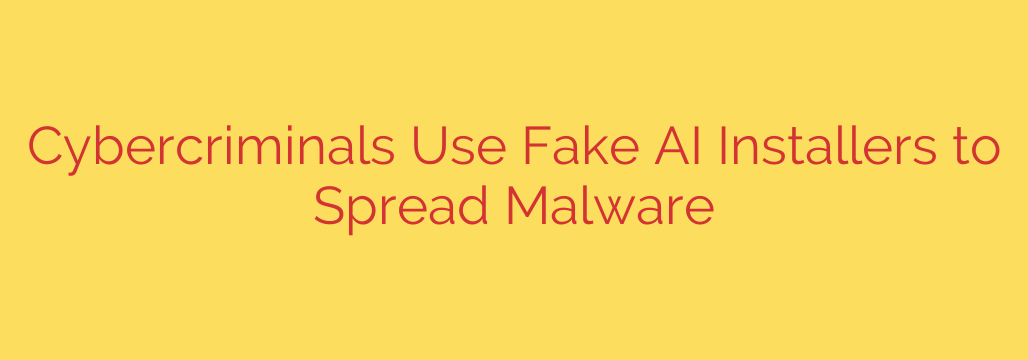
In the rapidly evolving digital landscape, the excitement surrounding new artificial intelligence tools presents a prime opportunity for malicious actors. Cybercriminals are actively exploiting this intense interest by distributing malware disguised as installers for popular AI applications. This insidious tactic preys on individuals eager to try the latest AI innovations, leading to significant security risks.
These fake AI installers are typically promoted through various deceptive channels. This includes malicious advertisements on social media platforms, compromised websites, and even seemingly legitimate-looking pages designed to mimic official download sites. Users searching for easy access to tools like image generators, chatbots, or video creators may stumble upon these fraudulent links, unaware they are about to infect their systems.
Once downloaded and executed, these counterfeit installers do not deliver the promised AI software. Instead, they secretly install various types of malware onto the victim’s computer. This can range from infostealers, designed to harvest sensitive data such as passwords, banking details, and personal files, to ransomware that encrypts data and demands payment for its release. Other threats include spyware that monitors activity or trojans that open backdoors for further attacks.
The effectiveness of this scheme lies in the high demand and sometimes limited availability of access to genuine AI tools. Desperate or impatient users are more likely to overlook warning signs and download software from unofficial sources. The sophisticated appearance of these fake installers and websites can further trick unsuspecting individuals.
To protect yourself from this growing threat, exercising extreme caution is vital. Always download software, including AI tools, exclusively from official sources – the developer’s legitimate website or reputable app stores. Verify the URL and website’s legitimacy before downloading anything. Use strong, unique passwords and enable two-factor authentication wherever possible. Maintaining up-to-date security software, including antivirus programs, is also a critical defense layer. Be wary of unsolicited emails or social media posts promoting AI tools with links that seem too good to be true. Staying informed about current online scams and threats significantly improves your online safety. By taking these precautions, you can significantly reduce the risk of falling victim to fake AI installer malware and keep your digital life secure.
Source: https://blog.talosintelligence.com/fake-ai-tool-installers/








